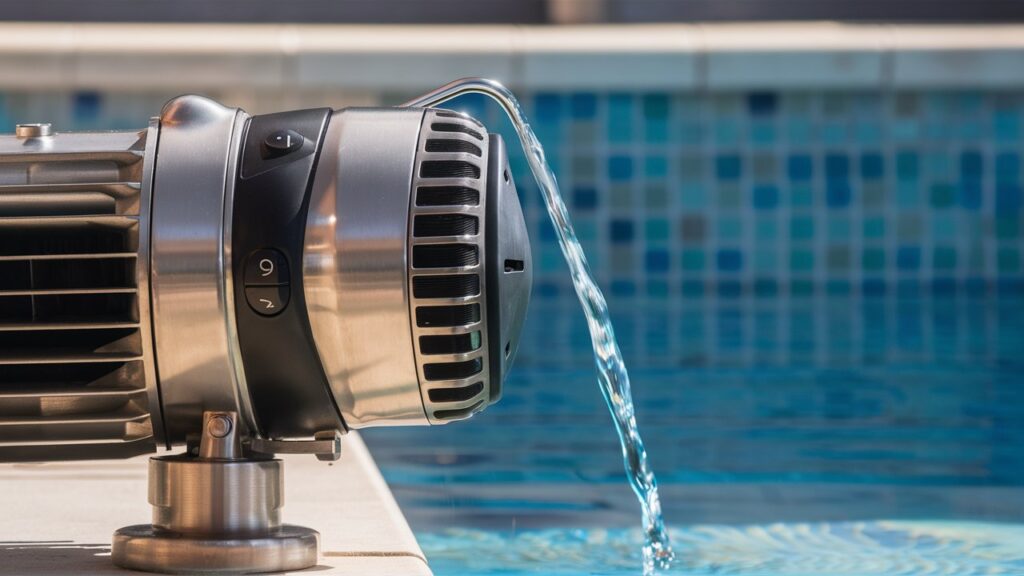Are you in the market for a new pool pump and feeling overwhelmed by the options available? Don’t worry, we’ve got you covered. In this comprehensive pool pump buying guide, we will walk you through everything you need to know to make an informed decision.
Recommended Best Pool Pump 2024-2025
| Recommendation | Product |
| Best Overall | Hayward W3SP3007X10AZ Super II Pool Pump |
| Popular Choice | Pentair EC-342001 Pool Pump |
| Best Value | XtremepowerUS 2HP In-Ground Swimming Pool Pump |
| Best Budget | Intex 28633EG Pump System |
| Another Excellent Pick | BLACK+DECKER Variable Speed Pool Pump |
Understanding the Basics
Before delving into the details, let’s start with the basics. A pool pump is an essential component of your swimming pool system that circulates water, keeping it clean and clear. It helps remove debris, filters the water, and ensures proper distribution of chemicals.
When it comes to choosing the right pool pump, there are a few key factors you need to consider.
Calculating Pool Volume
To determine the size of the pool pump you need, you first need to know the volume of water in your swimming pool. This can be calculated by multiplying the length, width, and depth of your pool.
| Length (ft) | Width (ft) | Depth (ft) |
|---|---|---|
| 15 | 20 | 5 |
In the example above, the pool volume would be 1500 cubic feet.

Flow Rate and Turnover
Once you have the pool volume, you need to calculate the flow rate and turnover rate. The flow rate is the amount of water that needs to be circulated in a specific period, usually measured in gallons per minute (GPM). The turnover rate is the time it takes for the pump to circulate all the water in the pool.
To determine the flow rate, divide the pool volume by the turnover rate. For example, if your pool volume is 1500 cubic feet and you want a turnover rate of 8 hours (480 minutes), the flow rate would be 3.13 GPM.
Resistance
The resistance in your pool system refers to the obstacles that the water encounters as it flows through the pipes, filter, and other equipment. Resistance can be caused by the length and diameter of the pipes, bends, and the type of filter you have.
It is important to note that resistance can impact the overall flow rate of your pool pump. By understanding the resistance in your system, you can choose a pump that can overcome these obstacles and maintain optimal circulation.
Choosing the Right Pool Pump
Now that you have calculated the necessary numbers, it’s time to select the right pool pump. When browsing through options, pay attention to the manufacturer’s performance charts. They will provide information on the flow rate and head requirements for each pump.
Consider the pump’s horsepower and size. Higher horsepower pumps are generally used for larger pools or those with more resistance. Smaller pools or ones with minimal resistance can work well with lower horsepower pumps. Additionally, variable-speed pumps offer greater flexibility in adjusting flow rates and can save energy in the long run.
Other Considerations
When selecting a pool pump, take into account noise output, ease of installation, reliability, and durability. Look for brands that are known for their quality and customer satisfaction, such as Hayward or Pentair.
In Conclusion
Choosing the right pool pump is essential for maintaining a clean and clear swimming pool. By calculating the pool volume, flow rate, turnover, and considering resistance, you can easily identify a pump that meets your needs. Don’t forget to take into account other factors like horsepower, size, noise output, and reliability. With this comprehensive pool pump buying guide, you’ll be well-equipped to make the right choice.
Frequently Asked Questions
How To Decide Which Pool Pump To Buy?
To choose a pool pump, calculate your pool’s volume, flow rate, turnover, and resistance. Match these figures with the pump manufacturer’s performance charts to get the right size and keep your pool clean and clear. Also consider factors like pool size, plumbing diameter, and filter flow rate.
How Do I Choose A New Pool Pump?
To choose a new pool pump, calculate your pool’s volume, flow rate, turnover, and resistance. Match these values with the manufacturer’s performance charts to get the right size pump for a clean pool.
Do I Need 1 Or 1.5 Hp Pool Pump?
Determine by pool size, flow rate, and resistance. Match with the manufacturer’s performance charts for the right pump size.
How Many Horsepower Should My Pool Pump Be?
The horsepower of your pool pump depends on your pool size, plumbing diameter, and filter flow rate. Calculate the flow rate and resistance, then match them to the pump manufacturer’s performance charts for the right fit to keep your pool clean and clear.